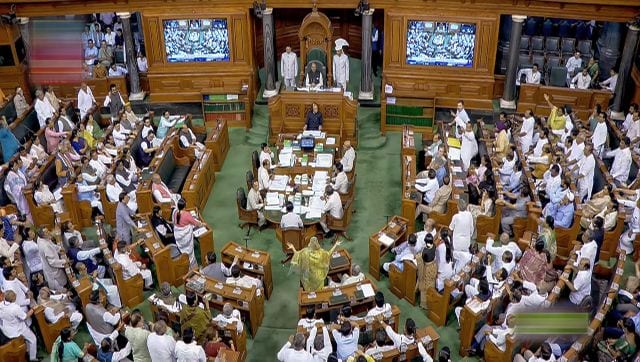
by Dr. Smit Gupta 29 December 2023
The sanctity of India’s Parliament, a beacon of democratic values, governance, and public representation, has recently been at the center of intense scrutiny and debate. The suspension of 143 Members of Parliament (MPs) from active legislative duties has ignited discussions about the evolving nature of democracy, governance transparency, and the foundational principles upon which our nation stands.
One of the most glaring aspects of this episode has been the pronounced silence from influential figures, notably Home Minister Amit Shah and Prime Minister Narendra Modi. In the aftermath of the security breach incident, their absence from the public discourse signifies more than just an administrative oversight. It symbolizes a potential void in the democratic accountability mechanisms that citizens rely upon to gauge their leaders’ commitment to transparency, responsibility, and the overarching principles that guide the nation’s governance.
To contextualize these recent events, a historical juxtaposition is imperative. Reflecting on past disruptions and incidents within the parliamentary precincts, such as the infamous use of pepper spray or allegations of physical confrontations between MPs, one discerns a marked difference in the severity of consequences and subsequent actions taken. The recent mass suspensions, when contrasted with historical precedents, raise legitimate concerns about the evolving norms, potential motivations, and the broader political landscape that influences parliamentary actions.
The differential treatment accorded to Opposition MP Mohua Moitra and BJP MP Prathap Simha serves as a microcosm of the broader challenges confronting the parliamentary system. Moitra’s suspension, juxtaposed against the perceived leniency or lack of stringent action against Simha, accentuates the potential inconsistencies, biases, or underlying political dynamics that may influence disciplinary outcomes. Such disparities inevitably erode public trust, sow seeds of skepticism, and challenge the very foundations of fairness, impartiality, and justice that should guide parliamentary proceedings.
At the helm of parliamentary proceedings are presiding officers vested with significant responsibilities, including maintaining decorum, facilitating constructive debates, and upholding democratic values. Recent actions, statements, and perceived alignments with specific political factions have regrettably cast shadows over the perceived neutrality, impartiality, and integrity of these critical roles. The injection of controversial remarks, deviations from established norms, and apparent alignments with specific agendas risk transforming Parliament from a bastion of democratic deliberation into a volatile arena where political expediency overshadows democratic ideals.
Amid these developments, the government’s accelerated passage of contentious Bills further muddies the waters, casting doubts on the sanctity, transparency, and procedural integrity of legislative processes. Congress President Mallikarjun Kharge’s astute observations regarding the potential strategic use of suspensions to fast-track legislative agendas unveil underlying dynamics, motivations, and potential ramifications for democratic institutions, governance frameworks, and citizen participation.
Furthermore, the perceived sidelining of substantive debates, potential curtailment of judicial oversight, and expedited legislative processes without adequate scrutiny pose existential challenges to the democratic ethos that has long defined India’s governance landscape. Such actions risk alienating diverse voices, diminishing checks and balances, and paving the way for potential authoritarian tendencies, undermining the foundational principles that have shaped our nation’s democratic trajectory.
In encapsulating this discourse, the recent developments within India’s Parliament necessitate rigorous scrutiny, introspection, and decisive action. They serve as poignant reminders of the imperatives of upholding democratic values, fostering transparency, and ensuring accountability across all governance tiers. As conscientious citizens, stakeholders, and advocates for democratic ideals, our collective responsibility transcends passive observation; it entails active engagement, advocacy, and participation in shaping a future where democratic principles remain inviolable, resilient, and reflective of the diverse aspirations of our populace.
The path forward demands unwavering commitment, heightened vigilance, and a resolute resolve to safeguard and strengthen the democratic principles enshrined in our nation’s constitution. Navigating these challenging times necessitates collective action, informed discourse, and an unwavering commitment to upholding, nurturing, and evolving India’s democratic legacy for present and future generations. Through collaborative endeavors, informed debates, and a steadfast dedication to democratic principles, we can navigate these tumultuous waters, ensuring that India’s democratic ethos remains vibrant, inclusive, and reflective of the aspirations, values, and aspirations of its diverse populace.
